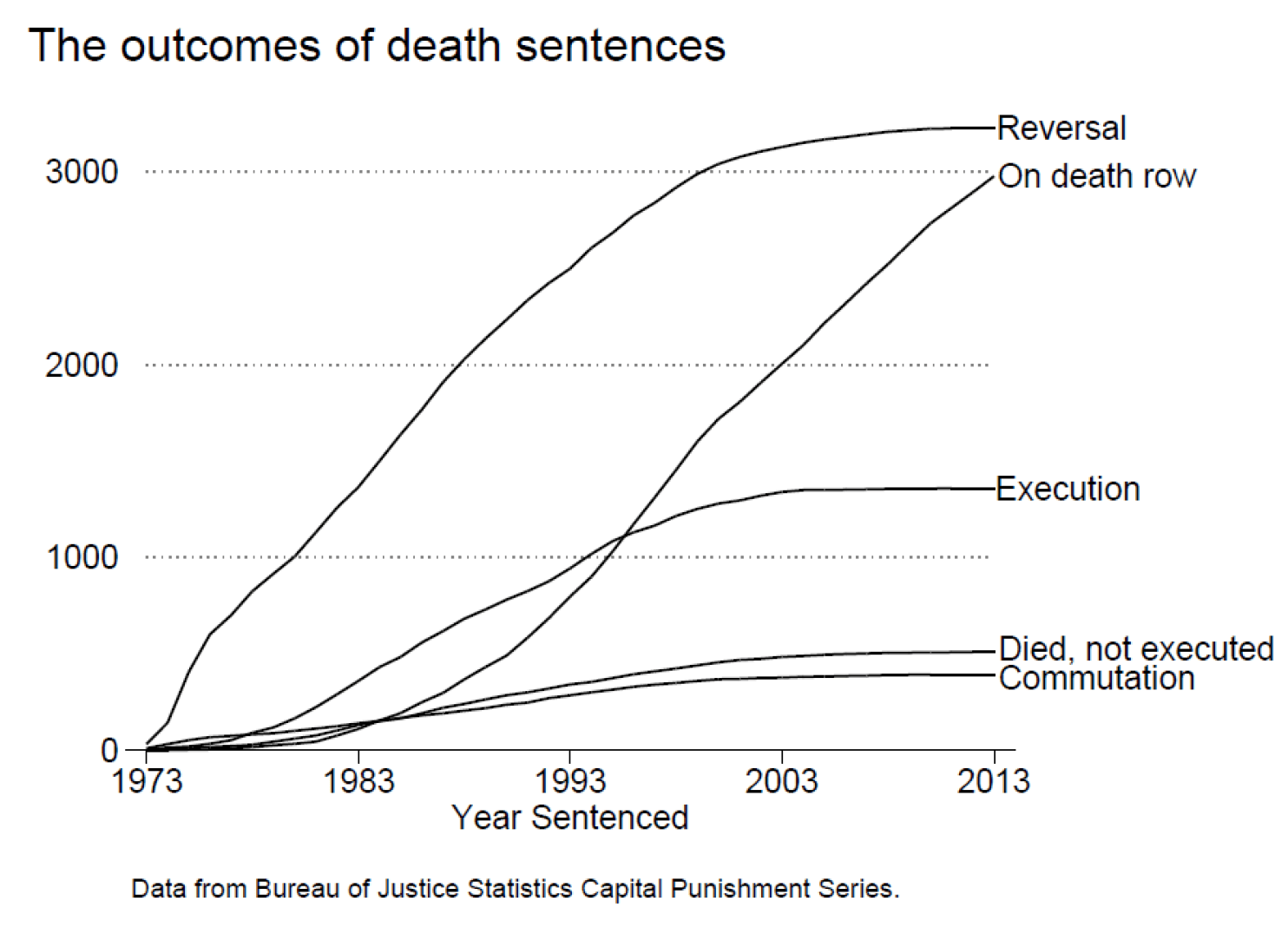
A new study from researchers at the University of North Carolina at Chapel Hill finds that the most likely outcome for a capital case once a death sentence has been imposed is that the defendant’s conviction or sentence will be reversed on appeal. Execution is only the third most likely outcome.
Of the 8,466 people sentenced to death from 1976 – 2013, 3,194 (38%) had their sentence or conviction overturned. 2,979 (35%) remained on death row at the time of the study. Fewer than 1 in 6 defendants — 1,359 (16%) — were executed. The rest died on death row of suicide or natural causes, had their sentence commuted, or were removed from death row for miscellaneous reasons.
The study also notes that these rates vary dramatically from state to state, with states averaging about a 13% likelihood of executing a death sentence, and only one state — Virginia — executing more than half of those sentenced to death. “Regardless of one’s view of the death penalty in principle, these numbers raise questions about how the death penalty is applied in practice,” the authors note. “The wide differences across states in the odds of carrying out a death sentence are potentially troubling from an equal protection standpoint.” They conclude, “A system that ensures prolonged court time, automatic appeals for the convicted inmate – most of whom are eventually successful – and only a small chance of actual execution is a system built on false promises for everyone, and indeed one that seems to verge on torture.” (Click here to enlarge image.)
Frank R. Baumgartner and Anna W. Dietrich, “Most death penalty sentences are overturned. Here’s why that matters.,” Washington Post, March 17, 2015.
Arbitrariness
Nov 21, 2024

Alabama is Set to Execute Carey Grayson in its Third Nitrogen Gas Execution in 2024
Arbitrariness
Oct 29, 2024

